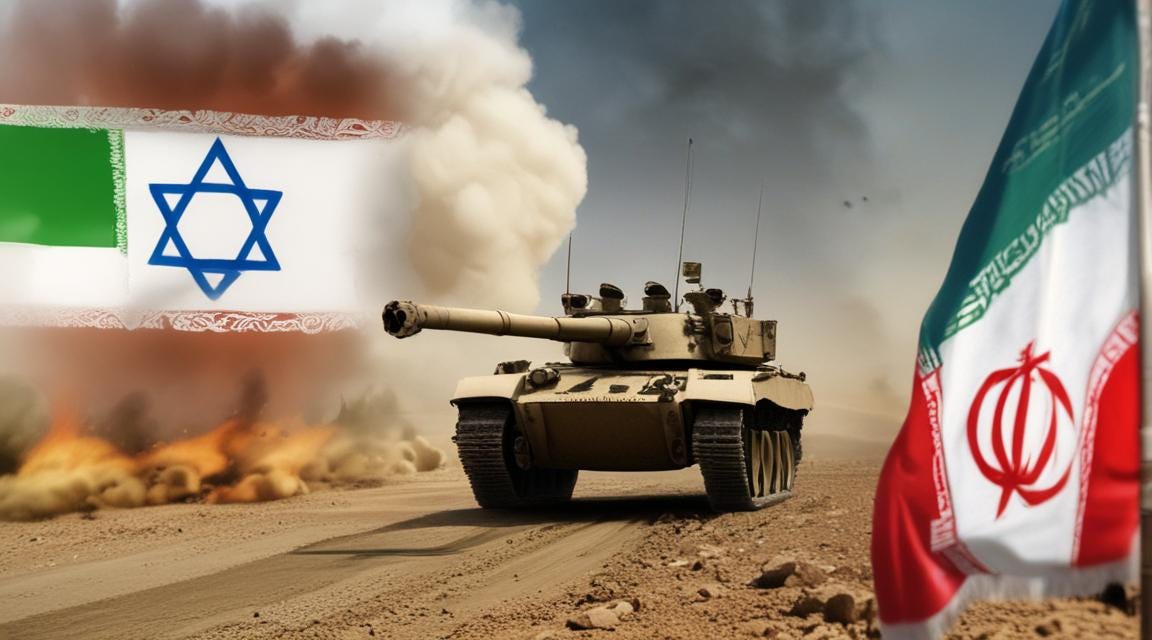Ah, the Middle East. Where a quiet weekend is about as common as a unicorn sighting, and geopolitical fireworks are always just around the corner. And in 2024, it’s business as usual—except this time, the stakes are higher than ever. Picture this: Iran launches a barrage of ballistic missiles at Israel, Israel promises revenge at a time and place of their choosing, and the whole world holds its breath, waiting for the next move.
Sound intense? That’s because it is. In the latest chapter of the ever-escalating conflict between Iran and Israel, tensions are reaching a fever pitch. This is no mere political squabble—this is missile-launching, infrastructure-destroying, lives-on-the-line kind of serious.
Let’s break down what’s happening, why it matters, and why you should care about the potential fallout.
The Opening Volley: Iran’s Missile Attack
October 2024, a month not soon to be forgotten. Iran kicked things off by firing over 200 ballistic missiles at Israel. Yes, 200. This wasn’t some rogue group acting on impulse; it was a calculated, full-scale military assault. Explosions rocked cities, air raid sirens blared, and civilians raced for bomb shelters. This wasn’t just a headline—it was an act of war.
Why did Iran launch the missiles? According to Iranian officials, this was a retaliation for the killing of top Iranian military leaders. Tehran, ever the fiery player in this region’s never-ending drama, didn’t take the assassination lightly. This was their way of sending a message: you mess with us, and we’ll mess with you—hard.
The U.S. has confirmed the attack and, unsurprisingly, declared their support for Israel. Because when Israel and Iran are involved, the U.S. always seems to find itself pulled into the mix. The Biden administration is reportedly locked in discussions, debating how to respond to this "significant escalation." That’s political-speak for “we’re figuring out how to make this less disastrous than it already is.”
Israel's Promise of Retaliation: “At a Time and Place of Our Choosing”
In typical Israeli fashion, the response was swift, clear, and dripping with ominous intent. Prime Minister Benjamin Netanyahu didn’t mince words. Israel would retaliate, but not in haste—at a time and place of their choosing. Sounds like something straight out of a Hollywood thriller, right?
What does this mean in practical terms? Israel, as always, is keeping its cards close to the chest. But make no mistake—they’re planning something, and when it happens, it won’t be subtle. The Israeli military, the IDF, is known for its surgical precision, so you can expect whatever retaliation comes will hit Iran where it hurts.
The World Reacts: On the Brink of a Larger Conflict
International reactions are pouring in, and they’re not exactly soothing. The UK’s Labour Party leader, Keir Starmer, has warned that the region is on the brink of a larger conflict. That’s British diplomacy for “this could spiral out of control very fast.” And he’s not wrong.
The Hindustan Times reports that Israel has warned Iran of serious consequences for their actions. This isn’t your average diplomatic finger-wagging. Israel has tied the missile attack directly to the killing of Hezbollah’s leader, Hassan Nasrallah. Nasrallah’s death wasn’t just a military blow to Hezbollah—it was a political earthquake across the region.
In Australia, the Sydney Morning Herald interviewed David Wood from the International Crisis Group, who predicted that serious retaliation is not only inevitable but could trigger a wider conflict in the region. And if you’ve been paying attention to the Middle East in the last 50 years, you know that when things escalate, they do so with alarming speed.
Russia, always eager to stir the pot, has thrown its own threat into the mix. TASS reports that Iran has warned Israel that any retaliation will lead to the destruction of Israeli infrastructure. That’s not an idle threat. Iran’s military capabilities, while not on par with Israel’s, are nothing to scoff at. They could certainly make life difficult for Israeli citizens and industries.
The U.S. Weighs In: A “Significant Escalation”
Meanwhile, across the pond, the Epoch Times has covered the White House’s reaction, labeling the attack as a “significant escalation.” That’s code for “this situation is really, really bad.” Ongoing discussions within the Biden administration are focusing on how to handle the crisis without triggering a full-blown war in the Middle East. Easier said than done, right?
The Bigger Picture: Why This Matters Globally
If you’re reading this from the safety of your cozy apartment far from the Middle East, you might be wondering why any of this matters to you. Well, let’s get real—this isn’t just a regional conflict. The Israel-Iran showdown has global implications.
For starters, the Middle East is a critical player in the world’s oil markets. Any disruption in the region, especially involving Iran, one of the world’s largest oil producers, can send oil prices skyrocketing. Suddenly, your morning commute just got a lot more expensive.
Then there’s the geopolitical ripple effect. The U.S. is deeply tied to Israel through military and economic alliances. An Israeli-Iranian war would almost certainly pull in the U.S., and where the U.S. goes, other NATO allies often follow. We’re talking about the potential for a global conflict sparked by a regional skirmish.
Let’s not forget the humanitarian crisis that could unfold. Wars aren’t fought in a vacuum. Civilians get caught in the crossfire, refugee crises erupt, and humanitarian aid becomes more critical than ever. If Israel and Iran go to war, the civilian toll will be devastating, and the world will have to grapple with yet another massive refugee crisis in an already volatile region.
The Ground News Angle: What the Media Is (And Isn’t) Covering
Let’s talk about the media coverage for a second. According to Ground News, the coverage of this conflict leans heavily to the left. Interesting, but not entirely surprising. The Israel-Iran conflict is a polarizing topic, and news outlets often bring their biases to the table.
What’s even more telling is that Ground News has put some of the key data—like factuality and ownership—behind a paywall. A little ironic, isn’t it? You want transparency, but first, you have to pay for it. Regardless, the data suggests that while there’s plenty of news about the conflict, how the story is being told varies significantly depending on the outlet.
What’s Next? The Waiting Game Begins
Now, the world waits. Israel’s promise of retaliation looms large, and Iran is holding its breath, waiting to see what that retaliation looks like. The international community is watching closely, with everyone from the UN to NATO hoping for a diplomatic solution—though few seem optimistic.
If history is any indicator, the Middle East isn’t one for peaceful resolutions when tensions run this high. Iran and Israel are both powerful nations with strong militaries and even stronger convictions. Neither is likely to back down, and when that happens, the consequences can be catastrophic.
Why You Should Care—and Stay Informed
This isn’t just another headline you can scroll past. The Israel-Iran conflict is a powder keg, and when it blows, it will have global consequences. Whether it’s the price of oil, the risk of wider conflict, or the humanitarian crisis that’s sure to follow, this is a situation worth watching closely.
And hey, while you’re at it, maybe check out some of those paywalled Ground News insights. Because if ever there was a time to stay informed about what’s really going on in the Middle East, this is it.













